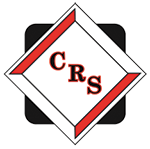The healthcare industry has continuously improved its outcomes regarding patient care. This can be done by collecting the right data and using the updated guidelines that were recently implemented. To guarantee that stroke patients receive high-quality care, healthcare providers must use the GWTG Stroke Registry, also known as Get With The Guidelines. Together with the GWTG CAD Registry (Coronary Artery Disease) and the GWTG HF Registry (Heart Failure), it assists hospitals in enhancing patient care by offering vital information about the efficacy of treatments.
Monitoring the performance of the respective institution by identifying areas for improvement through the validation that it is, in fact, executing best practices in stroke care makes the GWTG Stroke Registry help the hospitals. We will further discuss why the GWTG Stroke Registry is important, how both the patients and the healthcare providers benefit, and why hospitals must participate in the same program.

What Is the GWTG Stroke Registry?
The GWTG Stroke Registry will be a national program that will improve stroke care for the nation’s hospitals. All stroke treatments and outcomes will be gathered so that each hospital can compare its performance and know where it stands in the country. It strives to give patients the most effective treatment possible and ensure hospitals adhere to the latest guidelines in stroke care.
This registry standardizes care in a hospital so that the right treatment is readily available for patients as soon as possible. It also helps health care providers and facilities identify areas for improvement, thereby resulting in better outcomes for their patients.
Why Evidence-Based Care Is Important
The GWTG Stroke Registry has several strengths, with perhaps its greatest strength being evidence-based care. Medical guidelines for the treatment of stroke are constantly being updated as new research is done, and it is hard for busy healthcare workers to keep up with this. The GWTG Stroke Registry helps a hospital adhere to the latest evidence-based guidelines, making sure that patients suffering from stroke receive the best treatment possible.
A perfect example would be clot-busting drugs like tPA or tissue plasminogen activator. The drug should be administered as early as possible; otherwise, it may not benefit the patient. Thus, among other things, the GWTG Stroke Registry monitors how promptly the hospitals administer the drugs and potential delays. This helps the hospitals to know how to act to better their processes so that the patients get appropriate treatment at the most effective moment.
How the GWTG Stroke Registry Assists Patients
The GWTG Stroke Registry has provided a lot to the patients due to its relevance with guidelines. It would allow them to receive proper care for expedient recovery and fewer complications. Among the biggest ways in which the stroke care registry improves are as follows:
Rapid Treatment: It encourages hospitals to provide patients with fast and effective treatments. This also saves lives and reduces the chances of long-term disability.
Better Results: By using data to enhance their care, hospitals will be able to diminish the risk of secondary strokes and complications with higher overall outcomes.
Treatment: The registry simply ensures that all patients receive similar treatment and attention regardless of race, gender, or background.
Through participation in the GWTG Stroke Registry, the hospitals will be able to continually improve performance and deliver more consistent, quality care to stroke patients.
How GWTG Stroke Registry Helps Healthcare Providers
The benefits of the GWTG Stroke Registry extend to the patients; however, these registries also offer many benefits to healthcare providers. Enrollment in this registry can help hospitals be better-performing hospitals, gain recognition for quality care, and even start to deliver improvements in some of their financial metrics. Let’s discuss how:
- Data-Driven Improvements
The registry provides hospitals with detailed statistics regarding their performance in stroke care. By analyzing it, hospitals can determine where they need to pick up pace and develop action plans around specific needs. This GWTG Stroke Registry also allows them to compare their services against national and regional averages, thus providing a more realistic setting for goals regarding progressions for improvements and actual tracking of progressions.
- Improvement in Staff Morale
The fruits of their labor motivate healthcare teams to better themselves. The GWTG Stroke Registry provides hospitals with clear, measurable goals, which could lift the staff’s mood and establish teamwork. In fact, many hospitals use that data to create healthy competition between departments, engage the staff, and thus improve care.
- Correct Reimbursement
Use the GWTG Stroke Registry to improve the process of reimbursement in a hospital. It allows for the proper collection of data. Hence, they can validate that they meet specified standards of quality regarding care in stroke patients factor of countable reimbursement in hospitals by insurance companies and the government. Enhanced ability of participating hospitals to track and meet requirements of reporting from regulatory bodies such as CMS.
- Obtain certifications
Participating GWTG Stroke Registry hospitals can generally achieve certifications from organizations like the Joint Commission. These can serve as sources of pride for the hospitals within their communities as stroke care leaders. Patients are likely to be attracted to hospitals with such recognition, and generally, the reputation and market position of the hospitals are improved.
Technology Advancements for Better Care
Technology, in general, aids in making data collection and analysis easier for the hospitals involved in the GWTG Stroke Registry. From Cardiac Registry Support, we have systems that support full integration with a hospital’s EHR system and do not interfere with them to encourage efficient and accurate data collection while keeping the hospital’s concentration out of paperwork and more on patient care.
Our reporting capabilities allow hospitals to analyze performance data easily and gain important insights. Thus, with customizable dashboards, hospitals can view key performance metrics and compare results from several national benchmarks. Data will enable healthcare providers to make informative decisions and facilitate continuous improvement.
The GWTG HF and CAD Registries
While the GWTG Stroke Registry is focused on stroke, other registries in the program include heart conditions. These include the GWTG HF Registry (Heart Failure) and the GWTG CAD Registry (Coronary Artery Disease). Each of these helps hospitals improve patient care with either heart failure or coronary artery disease.
These registries will be afforded the same benefits as the GWTG Stroke Registry: hospitals will be able to track their performance, benchmark against national averages, and make data-driven improvement opportunities. Participation in these registries can improve care for all cardiovascular conditions among a broad range of patient populations.
Conclusion
The GWTG Stroke Registry is a valuable tool in improving care and outcomes for stroke patients. Participation ensures that the hospital works toward implementing the most recent guidelines and limits variation in care, hence constantly improving performance. Benefits extend beyond patient care, too: they assist hospitals in boosting the morale of staff members, streamlining reimbursement procedures, and earning valuable certifications.
If you haven’t already, sign your hospital or health system up today. With the aid of professional services like Cardiac Registry Support, hospitals can not only seamlessly integrate the registry into their procedures but also ensure data is collected accurately and efforts are maximized from participating in the GWTG Stroke Registry.


